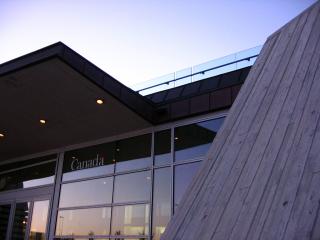
Comparing Christopher Hitchens‘ new book god is not Great with Richard Dawkins‘ recent The God Delusion seems only natural. Hitchens engages in much more direct textual criticism – an activity that Dawkins equates to discussing the history and habits of fairies with well credentialed fairyologists. While Dawkins’ book is a reasonably comprehensive attempt to rebut what he calls ‘The God Hypothesis,’ Hitchens’ is more concise and impressionistic. Dawkins explains early in the book that he aims to rebut the claim that:
there exists a superhuman, supernatural intelligence who deliberately designed and created the universe and everything in it, including us.
Note that this aims to rebut deism as well as those faiths that presume that god is still actively involved in the workings of the world. The most concise summarization of Hitchens’ work are his ‘four irreducible objections to religious faith:’
- That is wholly misrepresents the origins of man and the cosmos
- That because of this original error it manages to combine the maximum of servility with the maximum of solipsism
- That it is both the result and the cause of dangerous sexual repression
- And that it is ultimately grounded in wishful thinking
The degree to which any particular reader thinks they succeed in these aims probably has as much to do with their prior beliefs as with the arguments presented by Hitchens and Dawkins but, whether you agree with them or not, it is quite possibly a good idea to subject your existing view to some fairly rigorously structured criticism. It does apprear to be increasingly difficult to retain a literal interpretation of the scripture of any major faith, given evaluations of internal consistency, historical examination, and scientific inquiry.
What is often more interesting than the ontological claim made about the non-existence of god are the practical claims about what should be done in a world where the vast majority of people do believe in higher powers of various descriptions. Here, both writers are on shakier ground, though the question is an extremely difficult one. It is easier to condemn religious conflict and repression than it is to come up with practical mechanisms to reduce either. Within states, at least, there is some hope that a secular government can act to reduce such problematic manifestations of faith. Internationally, or in areas of active and religiously motivated war, relatively few such options seem to exist.
In an age where religious conflict, the question of tolerance, and multiculturalism have so much salience, both books are well constructed to make you think. Dawkins’ book is more comprehensively argued and systematic. Unless you have read a good sample of his work already, it is probably the better of the two volumes to read in isolation. That said, while his work is characterized by academic contemplation (and isolation), Hitchens has a more immediate perspective on some aspects of the operation of religion in the contemporary world.
I suspect people will get more from the volume written by the author with whom they are less familiar. Having read most of Dawkins’ prior books, relatively little in The God Delusion was a surprise. Having never before read Hitchens, the style of god is not Great was as novel as much of the content.






